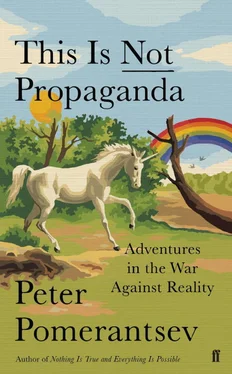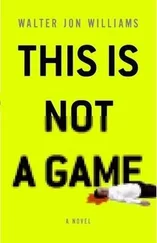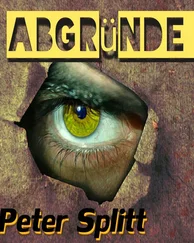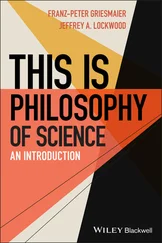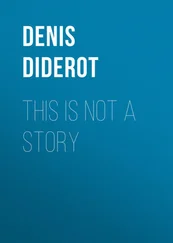Look around and black holes are opening up everywhere. ‘Maybe the world should be held responsible, because the world is a dangerous place,’ retorted the US president in late 2018, when confronted with mounting evidence that his ally, the crown prince of Saudi Arabia, had ordered the killing of a journalist inside a Saudi consulate in Turkey, the president’s phrase encapsulating an attitude whereby no amount of proof leads to accountability. [35]And when one looks at the slaughter of civilians by all sorts of forces in the Middle East (Saudi-and US-led, Iraqi, Israeli, Iranian), [36] , [37]the social media-powered ethnic cleansings and mob violence in Burma and Sri Lanka, [38]which one can see instigated live, online, in full view, it’s hard not to feel Mary Ana’s worst fears are coming true. And is disinformation then just the excuse we use to let ourselves off the hook – ‘We didn’t do anything because we were confused by a bot farm’?
Meanwhile, 22 TB of video recorded by the White Helmets sits in safe houses across Europe. To that one can add 60 TB of videos, tweets and Facebook posts held by the Syrian Archive: 800,000 documents and over 3,000 witness statements collected by the Commission for International Justice and Accountability that link crimes to senior Syrian officials. [39]
It is as much archive as we have ever had relating to torture, mass murder and war crimes. And it sits there, waiting for facts to be given meaning.
‘Excuse me, are you English?’
‘What do you feel: English or Russian?’
The incessant questions of my childhood, pursuing me from the mouth of every curious parent of my school friends as they drove me beyond London at weekends to visit country houses full of second cousins, infinite uncles and great-aunts, a rootedness so different to our wandering family. On those long rides in the back of other people’s cars I would stare, transfixed, at the borders between the fields. The hedgerows parcelled up the land so irregularly yet somehow coherently; even the fields seemed to be involved in a conversation so intricate and entrenched that it could feel rude to interrupt. The English were defined so precisely by class, accent, schools, postcodes, counties, parties and sports teams that for an immigrant like myself, it could be hard to know where to fit in.
One of the first things I worked out as an immigrant child is that you’re not meant to rush into Englishness. You can do that in the US maybe, but it would be utterly un-English to try to be English fast.
‘Your English is so perfect, one would never suspect you are a Russian,’ I would be told, making me feel that my English was some sort of deception (should I fake a Russian accent to be more genuine?).
To make matters more complicated, I couldn’t simply answer, ‘I’m Russian.’ I had been born in Ukraine after all, but into a Russian-speaking family. What did that make me – Soviet? Russia, Ukraine, the entire USSR were just vast splodges on the map that hung in our kitchen, splattered with coffee and wine; places I’d never visited, a territory I could only populate through the books that I had read. Is that where I came from – books?
The only way my identity fused with England was through the mass media, the television and radio synchronising my attention and emotions with the nation. This could be surprisingly intimate: in the 1980s Igor’s stories were being translated and broadcast on BBC radio, including Reading Faulkner, which, narrated by an English actor, made Chernivtsi sound like somewhere near Suffolk:
Better to try again, to describe Chernivtsi once more.
My childhood smelt of grapes, greenery and caraway. It passed under the watchful eyes of grandfathers (later I figured out only one was my grandfather, all the rest were his brothers). Can’t remember any winters in my childhood; perpetual July, the air flowing from the swelling apples and tickling so your head swam…
In 1987 Igor moved from the BBC World Service to the London bureau of an American ‘voice’ that broadcast into the Communist bloc. Radio Free Europe (RFE) had been set up in 1949 by American strategists in what they called a ‘citizens’ adventure in the field of psychological warfare’ [40] in order to help exiles from states newly controlled by the USSR express a different political vision of their home countries. In 1953 Radio Liberty was added to broadcast into the USSR itself. Unlike the BBC, where British editors controlled all output, here the exiles had more control. The first iteration of the ‘experiment’ ended in disaster in 1956, when, during the Hungarian uprising against Soviet occupation, broadcasters on Radio Free Hungary made incendiary speeches and gave protesters tactical advice, implying American military assistance was on its way. However, the US government didn’t provide any, and Hungarian dissidents felt lethally betrayed.
When Igor joined RFE, such escapades had long been reigned in and the broadcaster was legally bound to create news that was ‘accurate, objective, comprehensive’. It had changed in other ways too. At its inception RFE had been sponsored by the CIA, under the cover of private donations for a campaign called ‘Crusade for Freedom’. Since 1971 it had been funded via Congress and a ‘Broadcasting Board of Governors’, full of grandees from the media and academia appointed to safeguard its independence. But its mission remained different to that of a broadcaster like the BBC, which existed to represent Britain in the world. RFE/Radio Liberty was known as a surrogate station, whose aim was not to express the US or Britain abroad, but to articulate a different political identity for Russia, Ukraine and other countries under Soviet domination. To better understand its audience, RFE had an ingenious method of polling (which it shared with the BBC). Starting in the 1950s sociologists would visit the bars in busy ports or international fairs in the West that Soviet sailors and delegations would be allowed to visit, strike up conversations and ask them casually but systematically what sort of radio programmes they liked to listen to and why. When the Cold War ended they felt confident enough to ask Soviet tourists to fill in more formal questionnaires. Despite the best efforts of Soviet signal jamming, some 5–10 per cent of Soviet adults wiggled and waved their antennas to tune in to Radio Liberty between 1972 and 1988, a figure that was much higher among the well-educated and those in the big cities, rising to 15 per cent after jamming was removed in 1988, when Igor joined. [41]
Igor was now empowered to create his own worlds. ‘I have no interest in describing culture. But to create and blow culture like glass is thrilling,’ he would write later.
His aim was to intermingle Russia and Ukraine with a greater Europe: ‘I am not a cosmopolitan, I am a patriot. But I have a different patria. I feel a sense of home in Istanbul cemeteries, Rome, Chernivtsi, London, Sergiev Posad.’
He made programmes about glass, windows, billiards, colours – things that brought together different nationalities, junctures where they could meet and mix. He made programmes in which every one of the contributors spoke Russian with an accent, widening the boundaries of the language.
Igor’s weekly slot was called Across the Barriers, and from 1989 the real barriers were crashing down. It was a time of miracles on our Grundig television, with its four channels (two of which were BBC). Press the remote and there was Václav Havel, now free from prison and the president of Czechoslovakia, waving from a balcony to a great swell of cheering crowds in Prague; press it again and statues of Lenin were being pulled down throughout Central Europe, swaying in mid-air on chains hanging from cranes, like burnished bronze trapeze artists; press once more and people were clambering over the Berlin Wall, bashing away at the concrete with hammers, something they would have been shot for a few weeks ago.
Читать дальше
